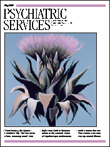Better Than Sane: Tales From a Dangling Girl
When I signed on to review a first-person account, I looked forward to an insightful story of illness and recovery by someone who has wisdom to share. Alison Rose's Better Than Sane: Tales From a Dangling Girl is not that story.
Rose starts her memoir by describing her present-day New York City room and highlights special objects that presage the stories she will tell. In this introductory chapter she also reveals the unhealed little girl that still drives this now-60-year-old woman. "People can come into my room if I invite them, but if they don't like it they can get out fast, because it's my room ."
Next we hear of her childhood in Palo Alto, California, where she is raised by a detached mother and a psychiatrist father who calls her "Personality Minus" or "Babs III." Her mother and sister were Babs I and II, though neither was named Barbara. Her best friends at ten are three "blond" mops that she dances with and a collection of pencils with names and faces. At 19 she is in Manhattan with an odd collection of friends, living in bars, abandoned rooms, cheap hotels, or on the grass in Central Park. After a number of lovers—they all have nicknames like "Baby Bob" and "Stevie the Greek"—and a period of shared housekeeping with a gay man named Dill whom she calls "Mother," Rose moves to Los Angeles on the promise of a screen test that never actually takes place. Her acting career doesn't get off the ground, but she occupies herself with a long affair with Burt Lancaster's son, "Billy the Fish," and with Valium and Eskatrol prescribed by her father.
By 40 she's back in New York, where she lands her first real job as the receptionist at The New Yorker magazine. For the remaining half of the book, she describes her reign over the entrance to the writers' floor—which she comes to call "School"—as she forms and breaks alliances with the quirky staff made up of mostly older men. She writes down all the odd things they say about her, like "A beguiling person such as you; the boring people, it's unsexy," and "Darling, you're lenitive and droll." As best as I can tell, she has torrid affairs with at least five of these men—Harold Brodkey, George Trow, "Europe," "Personality Plus" (recalling her father's moniker), and "Mr. Normalcy"—some of them simultaneously, some behind the backs of wives. She goes on to write "Talk of the Town" pieces for The New Yorker . For some reason they publish her personal history piece "How I Became a Single Woman: Scenes From a Life of Passion and Solitude," an earlier version of this book with the same graphic stories of sex on the kitchen floor with some of The New Yorker 's best known writers. When her time there is finished, she carefully packs up the three bulletin boards full of clever things people have said to her and rehangs them at home, exactly as they were.
Other reviewers of this book either loved it or hated it. "The book is original, beautiful, droll … , elegiac, and perfect," says one. "The most vapid foolish sycophant little rich girl imaginable," says another. It's not a boring read—especially if you fancy Hollywood or gossip about The New Yorker . But for my part, it's ultimately a sad story, the tale of a grown woman, stuck in a search for her father's love, who still acts and thinks and writes like a child.



